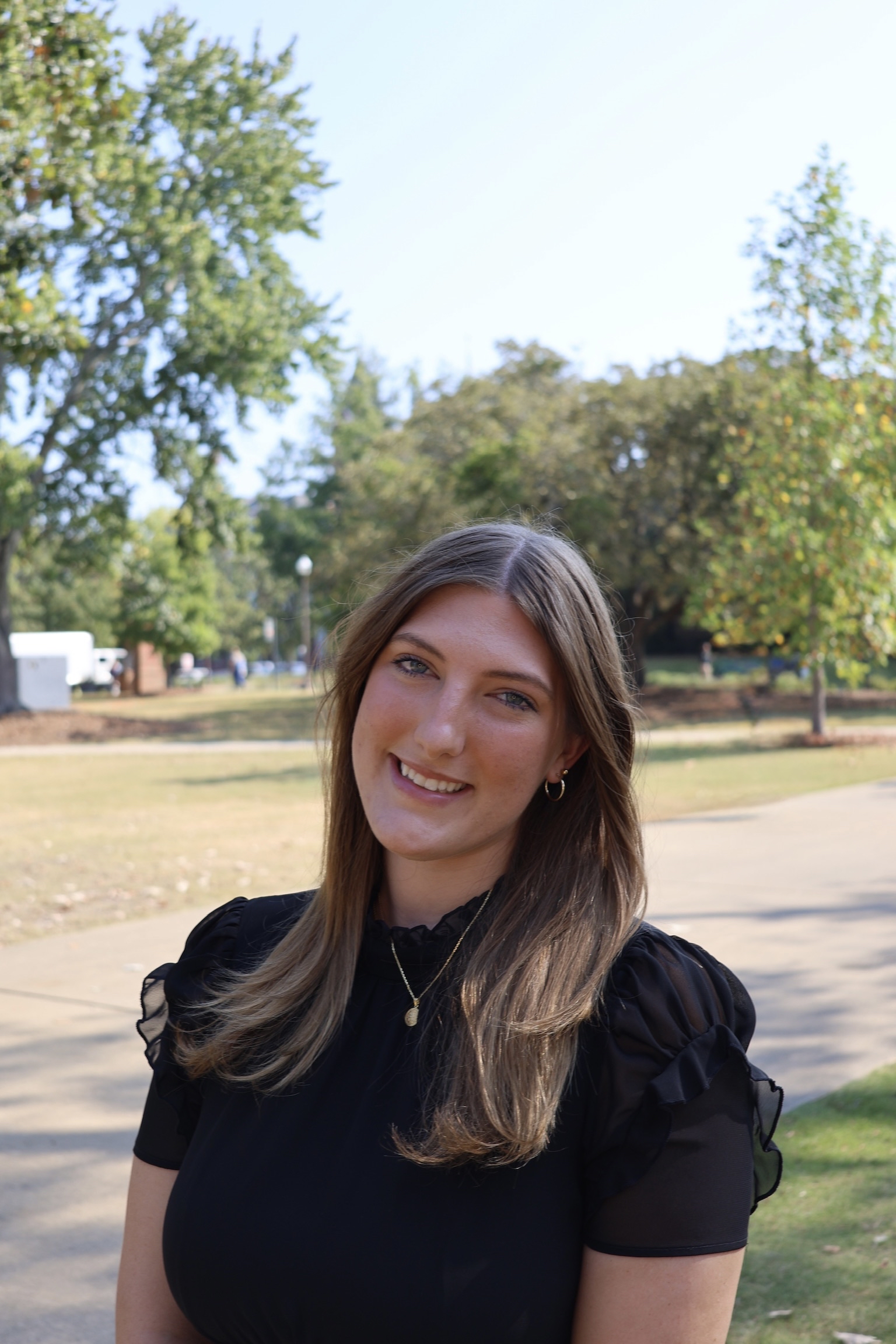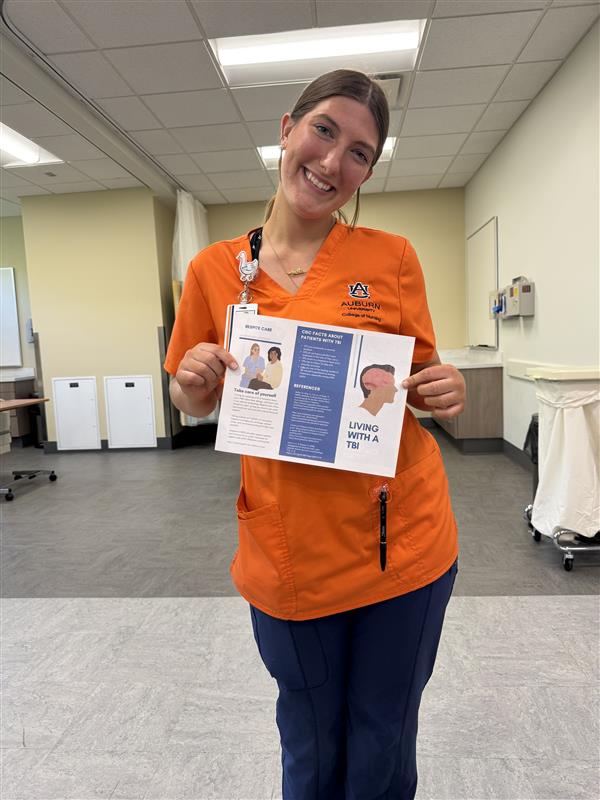content body
At Auburn University, Honors College students are encouraged to pursue academic excellence through enriched coursework, collaborative learning and exploration. While many students fulfill Honors requirements by enrolling in designated Honors sections, some — especially those in highly structured majors like nursing — face scheduling conflicts or limited availability of Honors courses that align with their degree plans.
That’s where Honors contracting comes in.
Contracting allows students to earn Honors credit by adding a unique, academically rigorous component to a non-Honors course. These projects go beyond the standard curriculum, offering students the chance to dive more deeply into topics that matter to them, whether through research, creative work or service learning. Contracts are developed in partnership with faculty and must reflect a qualitatively different experience, not just additional assignments.

a personal to professional journey
Rachel Dinkel is a prime example of what Honors contracting can make possible. This spring, she’ll graduate as an Honors College Scholar, having completed unique contracting projects that reflect both her personal journey and professional aspirations.
Suzanne Hunter, associate director of academic affairs, emphasized the importance of Honors contracting.
“We process over 500 contracts each semester,” she explained. “Our goal is to support students and faculty during the contracting process and encourage meaningful experiences for everyone.”
As a nursing student with a hearing disability, Dinkel’s first contract project was a podcast exploring accessibility in health care education. Inspired by her own experiences navigating classroom environments, she wanted to raise awareness about how small adjustments, like using microphones consistently or ensuring captions are available in videos, can make a big difference.

innovative contracts
The project gave her a platform to be open about her experiences, while also encouraging broader conversations and inclusion.
“All my professors were amazing,” Dinkel shared, “but I realized that in other places, people might not even know they’re overlooking something.”
The podcast resonated deeply, even prompting an underclassman with a similar disability to reach out for advice.
“Even if it was just one person,” Dinkel said, “they felt seen.”
Her second project focused on traumatic brain injury (TBI), a topic she explored through educational handouts designed for Auburn’s annual TBI camp. Dinkel didn’t stop at research; she assisted at the camp and gained hands-on experience that bridged classroom learning with real-world care.
“When patients leave the hospital, their journey isn’t over,” she said. This experience "taught me to look at the bigger picture and not just single moments.”
Currently, Dinkel is completing a research study on postpartum mortality, a pressing issue in maternal health. She’ll present her findings in a lecture to her nursing cohort, advocating for improved outcomes and greater awareness in postpartum care.
“It’s going to make me so much more prepared to be a nurse,” she said. “I’m seeing parts of my field that I wouldn’t otherwise.”
a testament to what’s possible
Through these contracts, Dinkel has not only earned Honors credit, but she’s also built lasting relationships with faculty, strengthened her research and time management skills, and made a tangible impact on her Auburn experience. When she applied to the Mentor-Mentee program through Auburn Nursing, her professors wrote letters of recommendation that deeply moved her.
“It felt so heartwarming to see what my professors thought about me,” she said. “It wasn’t simply, ‘she’s a great student’; they were able to talk about me as a person.”
Her advice to future students? “Go for it. Contracting doesn’t have to be a paper; it can be something fun, something meaningful. If you enjoy it, it won’t feel like work.”
As Dinkel prepares to graduate, her Honors journey stands as a testament to what’s possible when students are empowered to lead, learn and advocate on their own terms.





